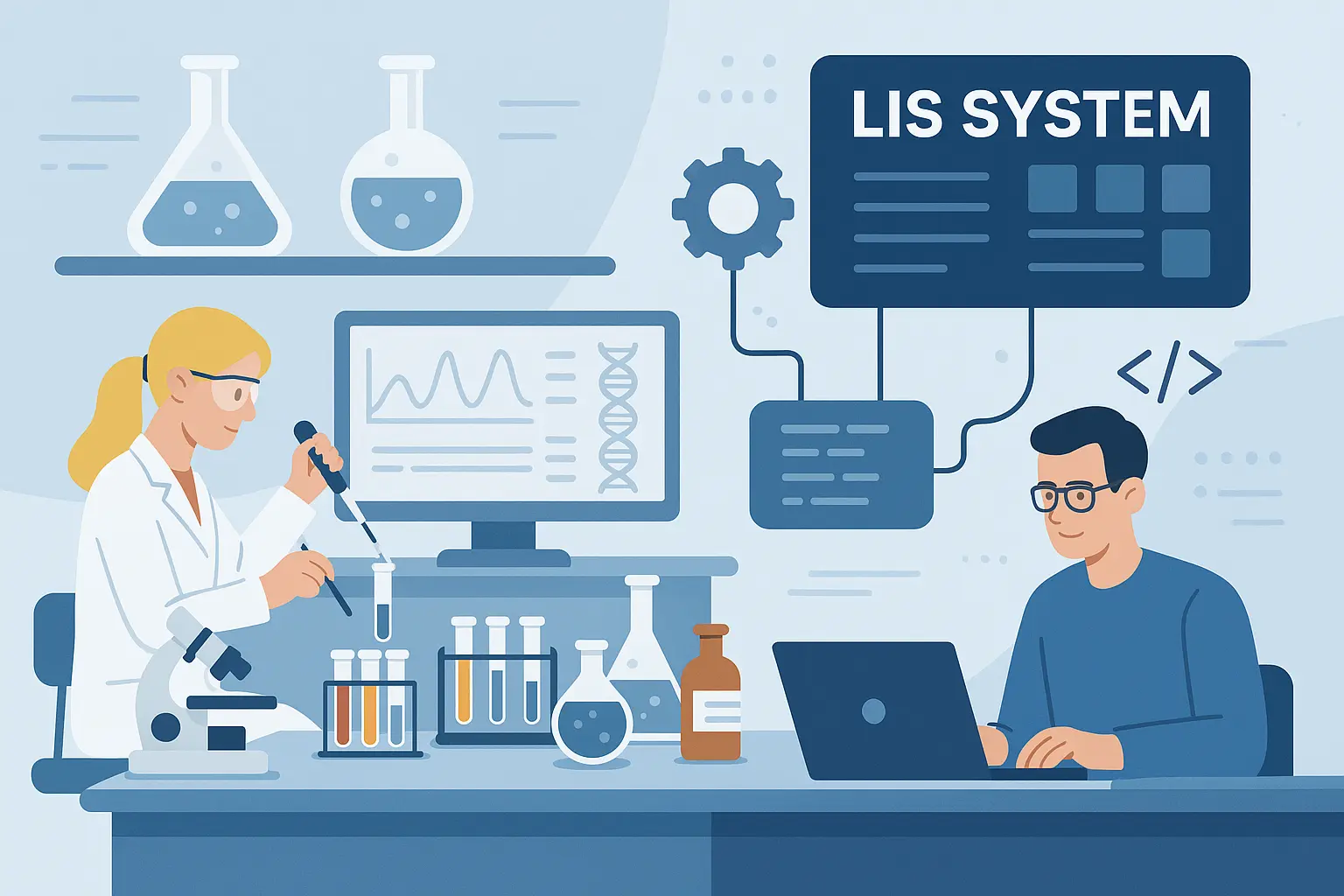Blog
Say Goodbye to Laboratory Cheat Sheets With Tags and Workflow Actions
July 24, 2024
At LigoLab, we’re committed to providing advanced LIS laboratory information systems (LIS systems) and pathology lab software solutions that streamline clinical lab workflow and make it easier to work smarter and grow your lab business.
Examples of this commitment are tags and workflow actions. In a moment we’ll take a closer look at each entity, but first, let’s examine what might still be happening in your lab environment.
Are your laboratory workstations cluttered with Post-it notes, cheat sheets, and disconnected Excel sheets to track issues?
Do they serve as little reminders for client preferences or special steps outside normal lab workflow?
Is your lab using different colored labels to denote certain attributes for specimens during processing?
Sadly, many labs still rely on these archaic forms of communication and clinical laboratory management assistance out of necessity.
Fortunately, LigoLab, an enterprise LIS company, provides a better and much more efficient way that eliminates the physical posting of reminder notes and flags, yet still accounts for customer preferences and special circumstances.
Let’s define what tags and workflow actions are within the LigoLab LIS & RCM Laboratory Informatics Platform, along with data field entities, and then segue into how they work together to make laboratory life easier.
Learn More: Four Game-Changing Business Strategies to Improve Laboratory Processes
LIS System Data Field Entities
In LigoLab terms, laboratory information system data field entities (DFE) are abstract models of real-world objects that can be added on the fly when using the platform. Examples of DFEs include a person, clinic, customer, patient, or report.
In the simplest of terms, tags and workflow actions extend the functionality of DFEs by capturing additional info that leads to action and resolution based on that info.
LIS System Tags
LIS system tags are lightweight classifications used for decision-making or grouping. Tags are stateless in that they can only be added and removed, and are transient inside the database. Tags alert users about special considerations that should be paid to certain clients. They are a quick and easy way to add lab information system attributes without writing a rule or configuration.
“From a programmatic and technical standpoint, LIS system tags give you more flexibility,” said Petros Martirosian, LigoLab Implementations Director.
According to Martirosian, tags come with two distinct advantages. They completely replace physical post-its and flags, and are also very powerful in that they can be utilized as programming assets throughout the LIS system.
Learn More: How LigoLab's Pathology Lab Software Supports Lab Report Customization and Client Preferences
LIS System Workflow Actions
Lab information system workflow actions are heavier than tags and carry more information and properties. Workflow actions are stateful and persistent in the database, have a history, and are tracked throughout via the audit trail. They drive manual lab workflow that calls for desired actions and a response or fulfillment of those desired actions (requested, resolved, or deleted are examples of this).
Workflow actions are located in the workflow action queue of LigoLab’s LIS system module and can be deployed as needed.
“Ninety percent of the time workflow actions are used because there is a manual step involved,” continued Martirosian. “So, instead of enhancing the LIS software, LigoLab provides a configurable solution that allows users to create workflow actions that save on cost and time.”
Tags and workflow actions serve as LigoLab’s Swiss army tools because they are applicable in many different scenarios and promote end-to-end efficiency while still meeting the needs of the most demanding LIS system customers.
“Fundamentally, all labs are the same, but in reality, there are so many different variants within each lab, and that's where these tags and workflow actions come in handy,” concluded Martirosian. “They give users the power to do more while working less and without added cost.”
Learn More: Stability and Performance: The Two Most Important Aspects of a Modern Laboratory Operation
LigoLab: Laboratory Information System Vendors Known for Comprehensive LIS Software Solutions
LigoLab Information Systems is the leading provider of innovative pathology software and laboratory information system solutions that meet the diverse needs of all medical labs (big and small, no matter the testing discipline).
Let the LigoLab LIS & RCM Laboratory Informatics Platform and its solutions for anatomic pathology (LIS pathology), clinical laboratory (LIS medical), molecular diagnostics (LIS molecular), laboratory revenue cycle management (lab RCM/lab billing), and direct-to-consumer lab testing (TestDirectly and TestDirectly.com) drive efficiency, performance, and growth in your laboratory environment.
Contact a Product Specialist to schedule a software demonstration and experience how a fully integrated LIS system & laboratory billing platform can unite and transform your lab’s financial, administrative, and technical operations.






